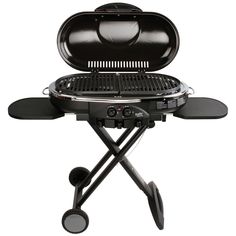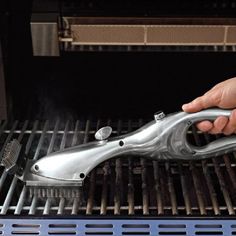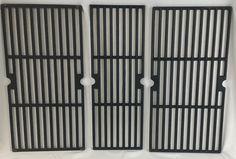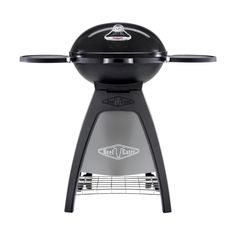What Is the Best Technique to Clean Porcelain-coated Cast-iron Grill Gates?

Cleaning the grill grates can help prevent rust buildup and ensure that the food you’re cooking is of good quality. You should clean your grates after each usage, but you should also clean them thoroughly at least once a year. Cleaning does not have to be a chore, but depending on the type of grill grates you have, you should be mindful about how to clean them.
Dirty grates can alter the flavor of food and hold bacteria that can make people sick.
Our easy-to-follow instructions will show you how to clean your grill grates all year long so you can make delicious barbeque meals.
Porcelain grill grates maintain a reasonable amount of heat and are impact resistant, but they must be kept clean. Any porcelain chips or scratches might expose the metal beneath the porcelain and allow water to flow in, causing rust. So, when using metal utensils for cooking, take care not to scrape or damage the grates.
When washing porcelain grills, do not use metal or wire brushes. Cleaning using a nylon brush or a soft bristle brush would suffice. On the grill, burn off any leftover food.
Allow for cooling before cleaning the grates with a nylon brush. In this blog post, I’ll walk you through the entire process of cleaning porcelain-coated cast iron grill grates. To find out more, keep reading! Our daily lives in this world lead us through a variety of spheres, each with its own significance in our existence.
The kitchen is another location where you can prepare food with love for your loved ones. It could be the gardens where you enjoy spending time with nature, your office where you enjoy your work, a friend’s house where you can be yourself without fear of being judged, or your own home and its comfort. In our life, each one has its own significance.
The kitchen is the spot in everyone’s heart that holds a special place in the hearts of food lovers like me and those who are passionate about cooking.
I enjoy cooking, so I’m the one looking for perfection and order at that location, as well as all of the essential ingredients for the dish I’m preparing to prepare. Cookware is undoubtedly one of the most critical and essential items required for cooking.
I’m pretty particular about examining the quality of the cookware I’m using because it can have a significant impact on the quality of the food we eat/cook in it, which can have a negative impact on our health. As a result, we must be cautious about the brand of cookware we are purchasing, as well as the metal from which it is produced.
Cast iron is one of the best metals for cookware sets that I’ve discovered via use over time. It is a metal that has been around for a long time but was not previously used by grill makers. However, due to a recent shift in trend, I’ve seen that grill makers are now using cast iron as well, providing us with a fantastic combo as a solution to all of our grilling problems.
Thus, the advantages of cast iron, such as its unsurpassed durability, the nutritional value it imparts to meals, and its low cost. On the other hand, maintenance is a critical consideration that must be addressed.
It’s a high-maintenance situation.
The combination of grilling grates and cast iron provided us with a nearly perfect solution, as cast iron’s excellent heat transmission quality allows us to grill practically flawlessly. However, a few elements about its upkeep must be grasped. Moisture is one of the grill’s worst enemies, but it’s inescapable. The porcelain coating proved to be a viable alternative. It does not obstruct heat transfer while grilling and protects the surface from dangerous factors that could degrade its quality. As a result, it proves to be extremely useful for cast grilling.
Porcelain Strength
Now, anything that is advantageous will have some or all disadvantages, so we must be cautious. Porcelain coating is the same way. Though it protects the metal from dangerous elements and makes cleaning it more manageable, it also necessitates some precautions due to the delicate nature of porcelain enamel, whose protective quality will be weakened if more brittle and abrasive chemicals are used to clean it. Don’t be concerned, in any case. The precautions to take and how to take them are detailed in the next section. After that, you’re ready to put it to work.
So, let’s get started!
One of the most important precautions to take when cleaning the grill grates is to be careful. Cleaning the grates should usually be done with a gentle yet dry solid scrub. The following section will outline some of the most effective methods for cleaning grill grates in order to prolong the life of your porcelain-coated equipment.
Brushes Are Used To Clean Porcelain Grill Grates

While cleaning porcelain grates, extreme caution is required, as I previously stated. The cast iron behind the enamel might corrode if the enamel is chipped away.
Steel wool should not be used, nor should a wire brush or scraper tool be used. Brushes with stainless steel bristles that are suitable for porcelain are also available; however, keep in mind that porcelain can be sensitive. The abrasive nature of such equipment causes enamel flaws, which leads to corrosion. Use a brass-bristle brush if you don’t have one. Brass brushes are smoother than wire brushes, and they are less prone to scratch the porcelain.
Different grill grate styles have different maintenance recommendations, such as stainless steel gratings. Still, these guidelines apply to most other grate kinds.
Cleaning Porcelain Grill Grates after Each Use
Remember to clean your grill after each usage of porcelain cooking grills so that dirt does not accumulate on the grates over time. If it builds up, it can taint the taste of the meal and potentially cause a fire hazard. To keep your porcelain grill grates clean and neat after each usage, follow the methods below:
- Increase the heat on the grill: This step aids in the removal of filth and remaining food particles from the surface.
- Reduce the heat: While the surface is still warm or hot, start wiping off the cooking oil and any residual food.
- For best results, clean diagonally.
For small areas, use a grill brush made of brass or nylon, as well as a scouring pad or toothbrush. Avoid burns by wearing gloves, potholders, or kitchen mitts.
Regular grillers can utilize this procedure to start practicing after each grilling session. It is simple to use and does not necessitate the use of any cleanser; all that is required is hot temperatures and vigorous scrubbing.
What Is the Best Way to Get Rid of Debris?
After you’ve finished cooking, turn to increase the heat on the grill and cover it. Allow the food and grease to burn off on the grill.
After ten to fifteen minutes, remove the cover and turn off the heat. Allow the grates to cool somewhat before scrubbing any leftover ash with a scraper or grill cleaner.
Soaking the Grates is a simple process that may be done at home.
I propose that you remove the grill grates a few times a year and soak them for a thorough cleaning. A large container, a kitchen sink, or a bathtub can be used to accomplish this. Mix in some hot water, half a cup of baking soda, and a few sprays of dish soap until thoroughly combined. Place the grates in the mixture and let them soak for about an hour. All portions of the grates should be scrubbed and then dried.
How to Use Vinegar to Clean Porcelain Coated Cast Iron Grill Grates

Vinegar’s acidity aids in the removal of grease from porcelain-coated cast iron grill grates. You can easily make a vinegar grate cleaner at home with items you already have in your kitchen.
You’ll need the following items to clean your porcelain-coated cast iron grill grates with vinegar:
- 1/2 cup apple cider vinegar or white vinegar
- One mug of water
- Grill brush made of nylon or brass
- Spray bottle or bowl
Steps
- Combine the vinegar and water in a bowl.
- For the DIY grill cleaner, pour it into a spray bottle or container.
- Spray the solution directly onto the grates or soak your brush in the bucket.
- Start scrubbing the grill grates diagonally and watch the gunk disappear. Make sure both ends of the rack are clean. This natural stove quick fix will give you a clean, grease-free grill.
- You may also use vinegar to clean the grates on your BBQ grill. After each usage, please turn on the heat to burn out any leftover grease and let it cool.
- In a large bucket or plastic tub, soak the grates overnight in a 1:2 vinegar solution.
- Scrub it out with warm water with a nylon or brass cleaner the next day. This method is similar to vinegar cleaning your oven racks in the dishwasher.
Note: Vinegar can leave a lingering odor or taste on your grill, and it can have a considerable impact on the taste of your food. After pulling the grates back, turn the fire back on to burn up any remaining vinegar.
How to Use Dishwashing Soap to Clean Porcelain Coated Cast Iron Grill Grates
Dishwashing soap is the most effective grease-removal remedy, as you may already know. The dish soap quickly degrades Fats and oils. Is there anything greasier than a greasy grill?
Dish soap will be needed to clean your porcelain-coated cast-iron barbecue grates.
- 1 gallon (or more) of hot water
- Dish soap, two capfuls
- Bristle brush made of nylon or brass
- Hose
Steps
- Hot water and soap should be combined.
- Scrub the filth clean with the brush dipped in soapy water. This method works well with all types of barbecue grates, even stainless steel.
- Before re-cooking, just on the grill, wash with a hose. Dish soap is an excellent soaking remedy for stuck-on food and oil.
- Clean the grill grate by rinsing it and lightly brushing it.
- Soak it up overnight with a dishwashing solution.
- Then, in the morning, clean it again.
- Finally, rinse the grate with vinegar before using it again to remove the soapy residue.
Using Baking Soda to Clean Porcelain Coated Cast Iron Grill Grates
If you already have baking soda in your kitchen, why not put it to good use while cleaning?
Baking soda’s texture is ideal for eliminating dirt and crud from grill grates. This method is so easy to use after any cookout that you might want to start using it immediately.
Baking soda is a fantastic substitute for vinegar if you don’t have any on hand. You’ll need the following items to clean your porcelain-coated cast iron grill grates with baking soda:
- Baking soda (one cup)
- A quarter cup of water
- Brush with nylon or brass bristles
- A washcloth and a sprayer or bucket of water
Steps
- Combine the baking soda and water together to form a smooth paste that may be used to clean porcelain grill grills.
- Straighten the grates with this gentle abrasive.
- Brush away any debris.
- If required, turn the grate over and repeat.
- Use a hose or pail of water and a towel to rinse off any remaining baking soda after you’ve cleaned away the gunk.
According to my observations, there are a few more methods for cleaning your grill grates that are effective. You can choose whichever option best fits you:
Remove the grease with a baking soda solution.
Your grates are likely exceedingly dirty at times. In that situation, instead of using an abrasive approach, consider a baking soda solution. Mix roughly six tablespoons baking soda with 2 ounces warm water to make a paste, then apply it to the iron grates. Allow for some time to pass before cleaning it with the bristle grill brush. It is now going to be cleaned. All you have to do now is wash the mixture, and you’ll be ready to cook.
Universal Barbeque Grill Scraper by Martin Grill Gadget

One of the most effective technologies for cleaning the barbeque grate is the Martin Grill Gadget Universal Barbeque Grill Scraper. It is because it not just makes cleaning it much easier, but it also eliminates the possibility of bristle loss. As a result, you won’t have to worry about it being added to your dish in the same way that spices are.
Its design also makes it one of the most modern gadgets for use in your home, and it includes grooves of various widths. As a result, based on how filthy your grill grates are, you can use one or the other.
The shaft of this device is composed of aluminum, making it even stronger and more lasting. And because these grooves are gentle, you won’t have to worry about jeopardizing the quality of your precious porcelain finish. This product’s lifetime warranty bears witness to this.
Clean the grates with tin foil.
It’s possible that you don’t have a grill brush on hand to wash the grill grates, but that won’t be an issue because there’s an excellent and widely available substitute. You may make a ball out of tin foil by shaping it into a ball form. Once the barbecue grates have cooled, the grill plates can then be cleaned with the tin foil ball. It’ll be nearly as efficient as the brush; therefore, it’ll suffice.
Cleansing Spray for Weber Grills
When it comes to grills and related items, Weber is one of the most well-known firms in the world, and cleaning spray is no exception. They also sell Weber grill cleaner spray, which is one of the best ways for cleaning the barbecue grates on the market. If your barbecue is also made by Weber, nothing beats the Weber Grill Cleaner Spray for cleaning it. It will prove to be the most appropriate method because it will be a mixture capable of cleaning even the toughest of barbecue grimes.
If you use this spray, you won’t need extra fire to keep the grill grates hot because it cleans even the excellent grates.
This spray is excellent for cleaning grill grates made of any metal, including cast iron and aluminum. Its USDA certification ensures that it will not harm anyone’s skin by producing irritation or inflammation. As a result, this spray is unquestionably one of the most outstanding cleaning solutions.
3-in-1 Grill Brush from Konestar
This is still another excellent option when it comes to cleaning the grill grates. This brush has three bristles, allowing you to clean the grills from every angle and remove every particle of debris.
This brush’s handle is 18 inches long. It is designed in this manner to keep your hand away from the hot grills. As a result, it ensures both your safety and safe and effective cleaning.
This brush’s wire is constructed of aluminum, which won’t harm the porcelain coatings, so you don’t have to worry about that. Because its structure allows for continuous cleansing of the grill’s top, bottom, and sides, the three-in-one brush, together with the way it is formed, accelerates the speed with which the grates are cleaned.
You can also be confident in the reliability of this brush because it is made of aluminum and high-quality plastic.
Thus, those as mentioned above are some of the most excellent options that will not only result in totally clean grill grates but will also guarantee that the quality of your cast iron grill grates’ porcelain coating is not harmed in any way. As a result, the part mentioned above accomplishes the article’s goal. We may now go on to the conclusion.
How to Make Scraping Grates Easier
Your kitchen has a wide range of equipment and materials that are perfect for DIY projects. You’ll need the following items to make your own grill scraper:
- Foil made of aluminum
- a pair of tongs (optional)
- Any of the cleaning solutions suggested in this article can be used (optional)
If you can’t seem to find a softer bristle cleaner, clean your grills using a different way. Scrape the dirt and stains from your porcelain grills with aluminum foil. Roll the aluminum into a broad enough ball to handle without damaging the grates.
Ensure you have more than enough aluminum foil between your hand and the grill to avoid burns. To ensure your safety, use tongs to capture the aluminum or wait until the grill has totally cooled before using this method.
I recommend that you clean the grates using a cleaning solution. It adds to the cleaning power of your homemade grill scraper. If you’ve chosen to use cleaning fluid, ensure the residue is rinsed away to avoid infecting the BBQ food. Alternatively, when you’re done grilling, smooth the grates with an old hardwood block that fits your hand well. After repeated use, the wood creates grooves that perfectly match the grate.
Intensive Cleaning

Many people ask if deep cleaning your grill grates is truly necessary, even if you clean those after each usage.
Yes, I would say. Deep cleaning the barbecue grills twice a year is vital, and I would advise you to do so. It’s best to perform it during the summer months’ start and end.
You’ll need the following items to clean your porcelain-coated cast iron grill grates thoroughly:
- Cleaner for Grate Grills
- Brush with nylon or brass bristles
- Washcloths or paper towels
- Hose
- Oil made from vegetables (optional)
Steps
- Grate Grill Cleaner should be sprayed over the porcelain coating of your BBQ grill.
- Allow it to cool for a few minutes.
- Then start cleaning the filth away with your soft bristle brush.
- If necessary, flip the grate over and do the same thing on the other side. Almost probably, there will be waste left behind.
- Spray the grate with warm water to clean it.
- To remove the extra grease from the grates, use a paper towel or a washcloth.
- Coat your cast iron grill grates after washing with a light layer of vegetable oil. It isn’t required, but it will assist prevent food from sticking the next time you grill.
The Grate Grill Cleaner is the most convenient way to wash grill grates because of its powerful cleaning capacity. It’s also suitable for charcoal grills that produce more residue on the underside of the grates than gas grills do.
The BBQ grill will now be as clean as it was when it was first purchased!
Finally, I discussed the best methods for cleaning your porcelain cast iron grill grates.
You now have a few options for keeping your porcelain barbeque grills looking great over the grilling season. This summer, show off and display your clean grills during family BBQs and barbecues.
Conclusion
Cookware is one of the most essential items in any kitchen, and its quality can influence the quality of your meals and, as a result, your health. As a result, you must verify that it is of the highest possible quality.
As previously discussed, cast iron grill grates with a porcelain coating would be ideal when it comes to grill grates. Because of the porcelain’s fragile nature, this is the case. However, some considerations must be taken with this most acceptable combination, particularly when it comes to cleaning the grill grates.
This article will help you solve that problem by describing the most effective methods for cleaning grill grates. I’ve tried them all, and I’m confident that knowing more about them will help you figure out which one is ideal for you. As a result, the article’s goal has been achieved.
With that, I’ll bid you farewell and wish you the best cooking and eating experience possible, as well as the simplest grill grates cleaning expertise possible. Maintain a clean grill with clean grates. I hope you have found this post to be informative.











